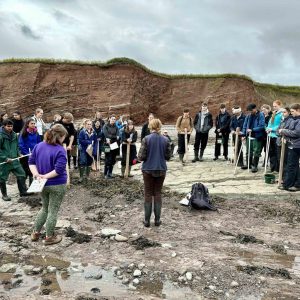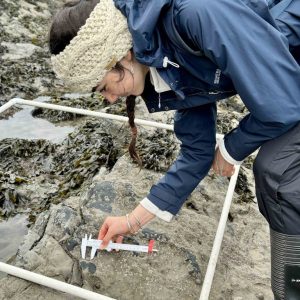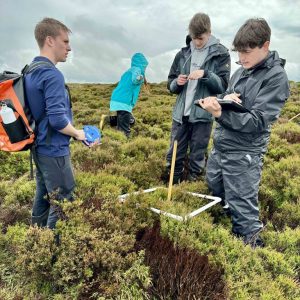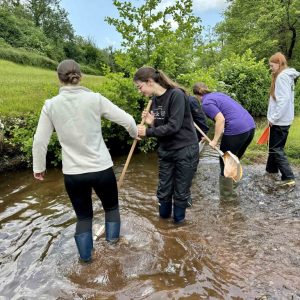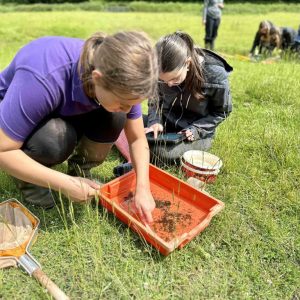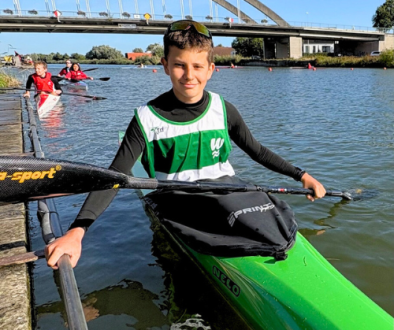Moorlands, Mammals and Microscopes
A group of 31 enthusiastic A Level Biology students recently swapped textbooks for wellies as they embarked on a field trip to Nettlecombe Court in the heart of North Devon’s stunning countryside.
Nestled in the rolling hills, Nettlecombe Court, a grand stately home and Field Studies Council centre, became home for the weekend. The aim? To explore and understand nature up close, armed with scientific equipment, sampling kits, and a thirst for discovery.
Throughout the trip, students were introduced to advanced ecological sampling techniques across a variety of landscapes, including fields, moorland, freshwater streams, and even the rocky shoreline. The group wasted no time in diving into the biodiversity around them. In the fields, students examined plant distribution and ecological interactions, while the streams revealed a host of aquatic life, allowing students to observe the behaviours of invertebrates.
The rocky shore provided not only a wealth of species to identify but also a bit of friendly competition as students raced to find the largest crab. Though the rain eventually arrived in true British fashion, it only added to the sense of adventure. A well-deserved lunch and some shelter in nearby Watchet offered a welcome break.
The learning didn’t stop there. Back at base, students tried their hand at trapping small mammals in the house gardens, though their efforts were somewhat thwarted by the resident cat, Benny! A few lucky students were rewarded with sightings of voles and mice in their makeshift mammal “hotels”.
As dusk fell, attention turned to the sky. With bat detectors in hand, students tuned into the ultrasonic world of bats, identifying the species flitting through the twilight. Discovering that bats make up 25% of all mammal species sparked wide-eyed amazement and newfound respect for these mysterious creatures.
The trip deepened students’ appreciation for the intricate workings of ecosystems and ignited a passion for environmental science that textbooks alone could never achieve.
Mrs Becky Briggs, Teacher of Biology and Environmental Officer

